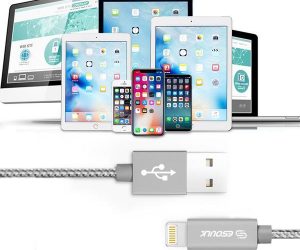Introduction
In today’s competitive marketplace, managing cash flow effectively is paramount for small businesses. One strategy that can help achieve this is the utilization of Net 30 accounts. Essentially, these accounts add flexibility to your business’s financial operations by offering the opportunity to buy now and pay later. This is not only beneficial for smoothing out cash flow but also plays a critical role in building a robust business credit score. This blog aims to explore how Net 30 accounts operate, their benefits to small businesses, and how they can be a stepping stone towards improved financial health and access to better financing options in the future. Understanding Net 30 accounts and incorporating them into your business practices could be a game-changer for managing your operations and fostering growth.
What is a Net 30 Account?
Definition and Explanation
A Net 30 account is a type of credit agreement allowing businesses to buy goods or services and pay the invoice in full within 30 days of the invoice date. This payment term, prevalent among business-to-business (B2B) transactions, offers companies a flexibly managed cash flow by deferring payment for a short period. Essentially, it acts as a buy now, pay later (BNPL) system specifically tailored for businesses, allowing them to invest in inventory, supplies, or services upfront without immediate cash expenditure.
Benefits for Small Businesses
For small businesses, Net 30 accounts hold particular appeal. Firstly, they improve cash flow management. By not having to pay for goods or services immediately, businesses can utilize their cash on hand for other vital operations or investments. Secondly, Net 30 accounts are conducive to building strong relationships with suppliers. Timely payments under such terms can lead to preferred customer status, potentially unlocking better prices, terms, or priority service. Additionally, utilizing Net 30 effectively can help small businesses build their credit score, provided their suppliers report payments to credit bureaus. A higher credit score can lead to more favorable credit terms in the future and lower interest rates on loans; both are crucial benefits for any growing business.
How it Differs from Other Payment Terms
Net 30 accounts differ from other payment arrangements like Net 60 or Net 90 terms, which offer extended payment deadlines but may not be as readily available to smaller businesses without established credit histories. Similarly, they differ from upfront payment terms, where the total amount must be paid at the time of purchase or delivery. Net 30 strikes a balance, offering a manageable timeframe for payment that can help businesses maintain liquidity while also fostering responsible credit practices.
How buy now pay later benefits businesses
Impact of Buy Now Pay Later on Credit Score
Engaging with BNPL options such as Net 30 accounts can positively affect a business’s credit score. This benefit unfolds when businesses adhere strictly to the payment terms, making full payments within the 30-day window. Consistent, on-time payments demonstrate creditworthiness to lenders and credit bureaus, potentially leading to an improved credit score over time. However, the key to reaping this benefit hinges on whether the vendor or creditor reports payment activity to the major credit bureaus. Before entering a BNPL agreement, businesses should confirm this aspect to ensure their payment behavior positively impacts their credit history.
Case Studies of Buy Now Pay Later
The effectiveness of BNPL strategies can be best understood through real-world examples. In one case, a small manufacturing company leveraged a Net 30 account to procure raw materials for an urgent order without depleting its cash reserves. This maneuver allowed them to fulfill the order on time, impress the client, and secure a larger contract. Successful repayment of the Net 30 invoice improved their credit standing, simplifying future procurement and credit endeavors.
Another case involved a retail startup that used BNPL options to stock up inventory ahead of a high-demand season without the upfront financial burden. The strategy paid off as sales exceeded expectations due to the well-stocked inventory, enabling the business to settle its account on time and even negotiate better terms with suppliers for future transactions. These examples underscore the strategic value of BNPL, facilitating growth and financial health when used judiciously.
Examples of How Buy Now Pay Later Benefited Businesses
The benefits of BNPL for businesses can manifest in various operational and financial improvements:
– Improved Inventory Management: A home goods store used Net 30 terms to order inventory in preparation for a seasonal sales event. The deferred payment allowed them to allocate cash to marketing efforts, significantly boosting sales.
– Cash Flow Optimization: A freelance graphic design agency employed BNPL to upgrade necessary software tools, allowing continued service provision to clients while spreading out the financial impact over the month.
– Investment in Growth Opportunities: A small cafe took advantage of BNPL to refurbish its interior ahead of a local festival. The investment attracted more customers, increased revenue, and the cafe settled the payment well within the due date, enhancing their credit profile.
These examples demonstrate that when strategically used, BNPL options can contribute significantly to operational success, financial stability, and growth for small businesses. By allowing companies to make necessary purchases without immediate financial strain, buy now, pay later terms offer flexibility and opportunity for businesses to navigate their unique challenges and prospects.
How Net 30 Accounts Help Build Credit Score

Net 30 accounts can be a powerful tool for small businesses looking to build or improve their credit scores. By allowing businesses to buy now and pay later, within 30 days, these accounts can offer valuable financial flexibility. More importantly, when used wisely, they contribute significantly to establishing a positive credit history for businesses.
Impact on Credit Score
When a business obtains a Net 30 account and makes payments on time, this responsible behavior is often reported to business credit bureaus. Just like with personal credit, on-time payments improve credit scores, while late payments can cause them to drop. Because the payment history is a crucial factor in credit scoring models, using Net 30 accounts responsibly can gradually enhance a business’s credit score. This improvement in the credit score can open more financial opportunities, including access to business loans with more favorable terms.
Tips for Using Net 30 Accounts Responsibly
To harness the full potential of Net 30 accounts in building credit scores, businesses should adhere to the following practices:
– Timely Payments: Always pay your invoices on or before the due date. Consider setting reminders a few days before payments are due to avoid late payments.
– Understand Terms and Conditions: Be fully aware of the terms and conditions of your Net 30 account. Pay attention to any fees, interest rates (if applicable), and reporting practices to credit bureaus.
– Use Sparingly: While it’s tempting to use Net 30 accounts for all purchases, overuse can lead to financial strain. Use these accounts for necessary purchases that align with your business’s cash flow and budget.
– Monitor Credit Scores: Regularly check your business credit scores with companies like Experian, Equifax, and Dun & Bradstreet. This will help you track progress and address any errors promptly.
Case Studies of Businesses that Improved Credit Score
Several small businesses have successfully improved their credit scores through disciplined use of Net 30 accounts:
– A small marketing firm, by regularly purchasing office supplies and printing services on their Net 30 account and paying the invoices early, significantly improved its credit score within a year. This improvement enabled them to qualify for a larger line of credit at lower interest rates.
– A local bakery used a Net 30 account to purchase ingredients and equipment. By managing their account wisely and making timely payments, they boosted their credit rating, which was instrumental in securing a loan to expand their operations.
Applying for a Net 30 Account
Applying for a Net 30 account can be a straightforward process, but it’s essential to understand the eligibility criteria, required documents, and common pitfalls to avoid.
Eligibility Criteria
Eligibility criteria for Net 30 accounts may vary between providers, but common requirements include:
– Business Entity: Your business should be legally registered. Sole proprietors, LLCs, and corporations are typically eligible.
– Business License: A valid business license demonstrating lawful operation.
– Minimum Time in Business: Some providers may require that your business has been operational for a minimum period, usually 6 months to a year.
– Business Bank Account: Having a dedicated business checking account is often necessary.
Documents Required
When applying for a Net 30 account, you’ll likely need to provide the following documents:
– Business Information: Basic information about your business, including name, address, and tax ID number.
– Financial Statements: Some vendors might request recent financial statements to assess your business’s financial health.
– Business License: A copy of your current business license.
– Bank Statements: Bank statements from your business bank account to demonstrate cash flow and financial stability.
– Credit References: References from other creditors or suppliers with whom you’ve had payment terms.
Before you apply, gather these documents in advance to streamline the process.
Common Mistakes to Avoid
While applying for a Net 30 account is generally straightforward, be mindful of these common mistakes:
– Incomplete Applications: Failing to complete the application in full or providing inaccurate information can lead to delays or rejections.
– Overapplying: Applying for multiple accounts within a short period can raise red flags for providers. Focus on one application at a time.
– Ignoring Terms and Conditions: Not understanding the specifics of your Net 30 agreement can lead to unexpected fees or missed payments. Always read the fine print.
– Neglecting Credit Score Impact: Assuming all Net 30 accounts report to credit bureaus can be a mistake. Verify with your provider to ensure your positive payment behavior is being reported.
Net 30 accounts offer small businesses a unique opportunity to buy now and pay later while concurrently building a robust credit history. By understanding how these accounts work, meeting the eligibility criteria, preparing the necessary documentation, and avoiding common application mistakes, your business can put itself in a position to leverage financial flexibility and growth opportunities this credit tool offers.
Best Practices for Managing a Net 30 Account
Managing a Net 30 account effectively is crucial for small businesses to maintain healthy financial operations and build a strong credit score. By adhering to a few best practices, companies can optimize their use of Net 30 accounts, ensuring they reap all possible benefits without falling into financial pitfalls.
Budgeting and Tracking Expenses
Effective budgeting is the cornerstone of financial management for any business, and it becomes even more critical when managing a Net 30 account. Small businesses should:
– Implement a robust system for tracking expenses and categorizing them efficiently. This can involve software tools that automatically record and classify spending.
– Forecast cash flow to ensure there’s enough liquidity to cover the Net 30 repayment at the end of the term without causing strain on the business’s financial well-being.
– Regularly review spending against the budget. If the business consistently spends more than expected, it may be time to reassess and adjust the budget to reflect actual needs and prevent overspending.
Maintaining an organized approach to budgeting and tracking expenses helps businesses avoid the trap of overutilizing their Net 30 accounts, which could lead to problems with cash flow and repayment.
Timely Payments and Communication with Suppliers
One of the primary benefits of a Net 30 account is the opportunity to build a positive credit history. To achieve this:
– Prioritize timely payments. Ensure that your invoices are paid well before the due date to avoid late fees and negative impacts on your credit score.
– Communicate proactively with suppliers. If you anticipate a delay in payment, reach out to your supplier or creditor before the payment is due to discuss potential options. This can help maintain a strong relationship and may lead to more flexible terms in the future.
By demonstrating reliability and open communication, a business can strengthen its relationships with suppliers, which is invaluable for both immediate and long-term operational success.
Utilizing Discounts and Rewards
Many suppliers offer early payment discounts to incentivize quicker repayment. Small businesses should:
– Review terms and conditions of Net 30 accounts to identify any such incentives.
– Calculate the savings associated with early payment discounts to see if they outweigh the benefits of extending cash on hand.
– Leverage any reward programs associated with their Net 30 accounts, such as cashback or points for purchases, to maximize the value gained from every transaction.
Taking advantage of these discounts and rewards not only saves money but also encourages a discipline of prompt payment, further improving a business’s creditworthiness.
Comparing Net 30 Accounts with Other Business Financing Options

To understand the value of Net 30 accounts within the broader context of business financing, it’s beneficial to compare them with traditional loans and credit cards, two common methods businesses use to manage cash flow and fund operations.
Net 30 vs. Traditional Loans
Traditional business loans provide a lump sum of cash with a repayment schedule over months or years, typically at a fixed or variable interest rate. Comparatively, Net 30 accounts offer short-term trade credit without interest, assuming the balance is paid within the 30-day term. Key differences include:
– Approval and Accessibility: Net 30 accounts often have more lenient approval criteria than traditional loans, making them more accessible for startups and businesses with less established credit histories.
– Interest Rates and Fees: While traditional loans accrue interest and may have upfront fees, Net 30 accounts are interest-free if paid on time. However, late payments on Net 30 accounts can result in fees and negative credit reporting.
– Flexibility: Loans provide a predetermined amount of capital upfront, while Net 30 accounts offer ongoing flexible purchasing power that can adjust with the business’s needs.
For small businesses with regular operational expenses or those looking to build a credit history without taking on long-term debt, Net 30 accounts can be a more suitable option than traditional loans.
Net 30 vs. Credit Cards
Credit cards also offer businesses a way to manage cash flow and make purchases, often coming with rewards and the feature to carry a balance month-to-month. The comparison with Net 30 accounts highlights several considerations:
– Interest Rates: If balances are not paid in full, credit cards typically impose high-interest rates on the carried balance, whereas Net 30 accounts do not charge interest if balances are paid within the term.
– Credit Building: Both credit cards and Net 30 accounts can help build a business’s credit profile when used responsibly.
– Rewards and Benefits: Credit cards may offer more comprehensive rewards programs, including travel perks and purchase protection, which Net 30 accounts generally lack.
While credit cards can provide more extensive rewards programs and the flexibility to carry a balance, the potential high-interest rates make Net 30 accounts a cost-effective choice for managing short-term financing and expenses.
In summary, Net 30 accounts serve as a valuable tool for small businesses looking to manage cash flow, maintain operational flexibility, and build a positive credit history. By adopting best practices in managing these accounts and understanding how they compare to other financing options, businesses can make informed decisions that support their financial health and growth.
Conclusion
In today’s dynamic business environment, maintaining a healthy cash flow while also building a solid credit history is crucial for small businesses. Net 30 accounts offer a lifeline in this scenario, allowing companies to buy now and pay later. This not only solves immediate financial constraints but also aids in establishing a reputable credit profile. By strategically utilizing these payment terms, small businesses can:
– Enhance their purchasing power without immediate financial strain
– Build a positive credit history, opening doors to more favorable financing options in the future
– Foster stronger relationships with suppliers through consistent and reliable payments
It’s essential for business owners to understand that while Net 30 accounts provide substantial benefits, they must be used responsibly. Late payments can adversely affect your credit score and future borrowing capabilities. Therefore, always plan ahead and ensure that your business can meet its payment obligations on time.
Embracing Net 30 payment terms can be a stepping stone to greater financial stability and growth for small businesses. By carefully integrating these accounts into your business finance strategy, you can leverage both immediate and long-term advantages that contribute to the success and expansion of your business.
















